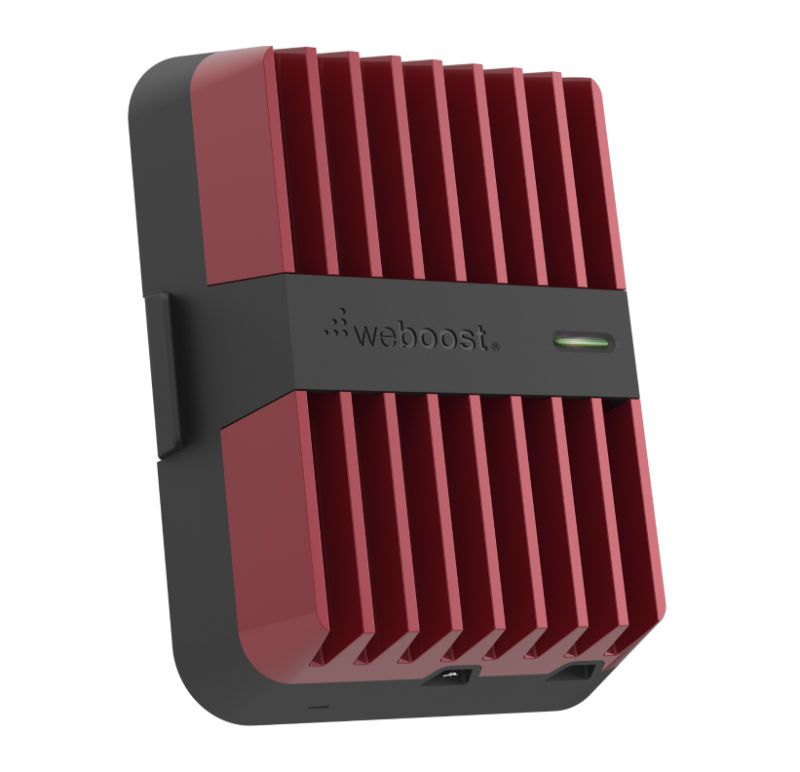
NEWS – Today Wilson Electronics has launched a powerful new in-vehicle signal booster device that has been designed to improve weak cellular signals in cars, trucks, and RVs to provide better connectivity while on the road. The weBoost Drive Reach device is compatible with all mobile phones and wireless carriers in North America and allows drivers to enjoy strong call quality, fewer dead zones and faster data upload/download speeds while traveling.
The weBoost Drive Reach in-vehicle cellular signal booster features uplink output power capabilities of 29.5 dBm and 50 dB gain which is the maximum allowable gain under FCC standards. The device uses an exterior mag-mount 4G antenna that connects to the booster/signal amplifier inside the car to boost weak signals up to 32x. Of course, if the area you’re traveling through has absolutely no signal at all, this product or any other signal boosting device will not work. You just have at least some signal in order to boost it.
Priced at $499.99 and certified by the FCC, the weBoost Drive Reach is available for purchase now at weBoost.com
Filed in categories: News
Tagged: Car Gear
Wilson’s new weBoost Drive Reach means no more cellular dead zones on your next road trip originally appeared on The Gadgeteer on May 21, 2019 at 1:00 pm.
Note: If you are subscribed to this feed through FeedBurner, please switch to our native feed URL http://the-gadgeteer.com/feed/ in order to ensure continuous delivery.




